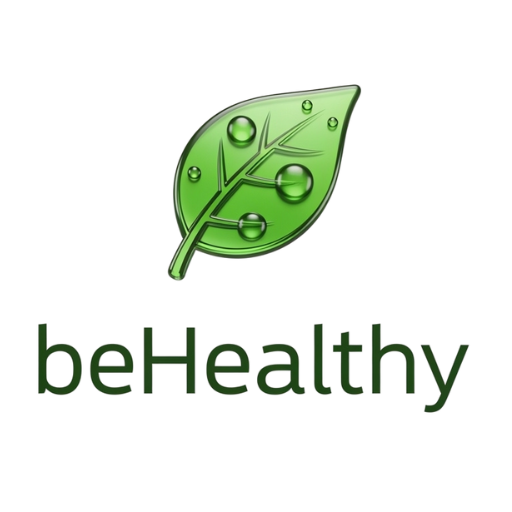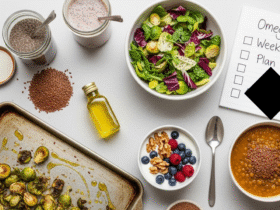It’s incredibly frustrating to feel off, lethargic, unmotivated, or simply not yourself without knowing why. You might show up to work, get through the day, and even laugh occasionally, but inside, there’s a quiet sense of downness or disconnection. It doesn’t shout like panic or depression, but it quietly hums in the background.
This persistent feeling could be your body’s way of signaling that something is out of balance. One of the key players in this imbalance is serotonin, the mood-balancing neurotransmitter in your brain.
You may wonder: What about the times when you’ve felt depressed, anxious, tired, and mentally sluggish? The question to ask yourself is: Are my serotonin levels at the right level? And if they aren’t, what can be done about it—naturally?
This article will walk you through the best research-backed natural methods to increase serotonin levels without relying on medication—using daily exercises, foods, and emotional techniques that truly work in real life.
What Is Serotonin? (And Why Is It So Important?)
Serotonin is a neurotransmitter, a chemical messenger that helps your brain and body communicate. It’s often called the “feel-good” chemical because of its critical role in mood regulation, but serotonin is much more than just a happiness hormone.
Serotonin affects:
- Emotional and mood stability
- Sleep regulation and melatonin production
- Digestion and food appetite
- Pain perception
- Memory and concentration
- Sexual desire and sexual function
What’s surprising is that 90% of serotonin is created in your gut, not your brain. This means that your lifestyle, nutrition, and gut health are crucial for maintaining healthy serotonin levels. The connection between your gut and brain is more direct than many realize, and supporting your gut health is key to promoting optimal serotonin production.
How to Tell If Your Serotonin Levels Are Low
Low serotonin doesn’t always show up in the same way for everyone, but there are common symptoms to look out for:
- Chronic feelings of sadness, numbness, or hopelessness
- Unexplained agitation or anxiety
- Sleep disturbances (trouble falling asleep or staying asleep)
- Constant cravings for carbs or sugar
- Fatigue, even after a full night’s sleep
- Digestive issues, such as bloating or IBS
- Difficulty focusing or remembering
- Loss of interest in sex
These symptoms may be temporary and can come and go, but if they persist, it’s important to take them seriously. Instead of immediately reaching for medication or blaming yourself, consider that your serotonin system might need some nourishment—and it can often be restored naturally.
How Serotonin Is Made in the Body
How Serotonin Is Made in Your Body
Serotonin doesn’t simply appear in your body out of nowhere. It’s created from a protein building block known as tryptophan, an amino acid that your body obtains through food.
The Basic Formula:
Tryptophan → Serotonin → 5-HTP
However, this conversion doesn’t happen automatically. Several factors support the process:
- Vitamin B6
- Magnesium
- Healthy gut bacteria
- Carbohydrates (to help tryptophan cross the blood-brain barrier)
That’s why a whole-person approach—including the right foods, exercise, sunlight, and emotionally healthy habits—is the most effective way to increase serotonin levels.
So, how do we go about boosting serotonin naturally and effectively? Here are a few methods you can start incorporating today.
1. Shun More Sunlight Naturally
One of the easiest and most effective tools to boost serotonin is sunlight. Exposure to sunlight, particularly in the morning, signals the brain to produce serotonin and helps balance your internal clock.
This is why people affected by seasonal affective disorder (SAD) often feel better in the spring and summer months, and worse during the gloomy winter months.
How to Do It:
- Aim for 15 to 30 minutes of sunlight exposure daily, preferably before noon.
- Morning sunlight helps correct your circadian rhythm, which regulates both serotonin levels during the day and melatonin (the sleep hormone) at night.
No Sun?
Consider using a light therapy box, especially in winter. But always consult with a healthcare professional first to ensure it’s right for you.
2. Exercise (Aerobic Exercise in Particular)

You don’t need a gym membership or 90-minute workouts to reap the benefits of exercise for serotonin production. Even a 20-minute walk can work wonders.
Why Exercise Helps:
- It increases the availability of tryptophan in your body.
- It enhances brain-derived neurotrophic factor (BDNF), which favors serotonin activity.
- It lowers cortisol (the stress hormone), which competes with serotonin.
- It boosts mood almost instantly by releasing endorphins (the “feel-good” hormones).
You don’t need to do high-intensity workouts—consistency is key. Whether it’s dancing, biking, jogging, swimming, yoga, or simply taking a walk in the park, any activity that gets you moving helps.
3. Consume Serotonin-Supportive Foods
While you can’t directly eat serotonin, you can eat foods that help your body produce it. The key nutrient for this process is tryptophan, which is found in various proteins.
Here’s the twist:
For tryptophan to be effective in crossing the blood-brain barrier, carbohydrates are necessary. The combination of tryptophan and carbs helps your body deliver serotonin to the brain.
Tryptophan-Rich Foods Include:
- Turkey, chicken, and other poultry
- Eggs
- Dairy products (milk, cheese, yogurt)
- Nuts and seeds
- Tofu and soy
- Fish like salmon and tuna
Pairing these tryptophan-rich foods with healthy carbs (such as whole grains, sweet potatoes, and fruits) can help maximize serotonin production.
Top Foods That Support Serotonin Production
| Food | Key Nutrient | Benefit |
|---|---|---|
| Salmon | Tryptophan, Omega-3 | Supports brain health and neurotransmitter production |
| Eggs | Tryptophan, Vitamin B6 | Builds serotonin precursors |
| Turkey | High in Tryptophan | Classic serotonin-boosting protein |
| Tofu & Soy Products | Plant-based Tryptophan | Great for vegetarians/vegans |
| Seeds (Pumpkin, Chia) | Magnesium, Tryptophan | Combats stress + builds serotonin |
| Oats | Complex carbs | Helps carry tryptophan into the brain |
| Bananas | Natural sugars + B6 | Boosts mood and energy |
| Yogurt & Kefir | Probiotics | Improves gut health (where serotonin is made) |
Tip: Try combining protein + carbs in meals. For example, salmon + brown rice, or eggs + whole-grain toast.
And while we’re here — don’t skip meals. Long fasting periods or low-carb extreme diets can reduce serotonin over time, especially if you’re already sensitive to mood changes.
4. Improve Your Gut Health
Since 90% of serotonin is produced in your gut, maintaining a healthy digestive system is essential for maintaining good mental health. If your gut health is compromised—due to processed foods, stress, or antibiotics—serotonin production may slow down.
Ways to Support Gut Health:
- Consume fermented foods: yogurt, kefir, sauerkraut, kimchi, and miso.
- Include prebiotics: onions, garlic, asparagus, bananas, and oats.
- Add fiber: vegetables, flaxseeds, berries, beans.
- Drink plenty of water: Hydration supports digestion.
- Avoid processed foods and excess sugar: These can interfere with gut flora and serotonin production.
Improving gut health may take time, but even small changes can lead to significant improvements in both physical and emotional well-being.
5. Practice Gratitude and Positive Thinking
our thoughts have a direct impact on brain chemistry. Research shows that practicing gratitude can improve serotonin activity, as it trains your brain to focus on positive aspects of your life.
Simple Gratitude Routine:
- Before bed, write down three things you’re thankful for.
- Or ask yourself, “What went well today? What are the reasons it happened?”
This simple practice shifts your mindset from survival mode (which lowers serotonin) to appreciation and connectedness (which raises serotonin levels). Over time, this habit rewires your brain for positivity.
6. Meditate, Breathe, and Be Still
In today’s fast-paced world, pausing can be a powerful form of medicine. Techniques such as mindfulness meditation, deep breathing, and body scanning can relax your nervous system and support serotonin function.
Why It Works:
- Meditation reduces cortisol, a stress hormone that impairs serotonin levels.
- It stimulates the prefrontal cortex, which is linked to serotonin pathways in the brain.
- Regular practice increases emotional resilience, patience, and self-awareness.
Try This Simple Breathing Exercise:
- Breathe in to the count of 4.
- Hold for 4 counts.
- Release for 6 counts.
- Repeat for 2-3 minutes.
This quick exercise can help you reset and promote serotonin production.
7. Embrace Touch: Massage, Hugs, and Warmth
Physical contact doesn’t only release oxytocin (the bonding hormone), it also boosts serotonin. Simple actions like:
- A 20-second hug
- Foot or hand massage
- Wrapping yourself in a warm blanket or using a hot compress
- Sitting with a pet in your lap
- Using a weighted blanket for comfort
These gestures send signals to your nervous system that you are safe, which directly supports serotonin production.
If you’re feeling touch-starved, even a self-massage (like massaging lotion into your arms or feet) can help promote feelings of comfort and security.
8. Laugh, Connect, and Play
While it’s obvious that laughter feels good, there’s scientific evidence to back it up. Laughter has been shown to boost serotonin and endorphin levels, reduce stress, and improve brain chemistry in ways that promote long-term mood stability. Social connection has similar effects.
Ways to Boost Mood with Laughter and Social Connection:
- Watch a funny video or comedy show
- Call a funny friend
- Play light-hearted games
- Join a hobby club or community group
- Embrace a little silliness—make room for it in your life
Happiness doesn’t need to be loud or extravagant—it just has to be authentic.
9. Use Music, Art, and Creativity as Therapy
Engaging in creative activities like painting, journaling, or simply listening to uplifting music can fire up the parts of your brain associated with emotional response, including serotonin secretion. The act of creating or enjoying beauty helps your brain transition from survival mode to expansion mode.
Ways to Incorporate Creativity into Your Day:
- Create a playlist that cheers you up and listen to it regularly
- Sing along while driving or cooking
- Draw or paint freely, without worrying about perfection
- Write poetry based on how you’re feeling
- Dance around your kitchen when no one’s watching!
Every moment spent creating or enjoying beauty is a moment spent boosting serotonin.
10. Natural Supplements (With Caution)
While lifestyle changes are the primary method for boosting serotonin, certain supplements can help support the process. Always consult with a healthcare provider before adding new supplements, especially if you are on medication.
Supplements That May Promote Serotonin:
- 5-HTP (5-Hydroxytryptophan): A building block of serotonin
- Tryptophan: An amino acid that produces serotonin
- SAM-e: Supports neurotransmitter activity related to mood regulation
- Vitamin B6 and B12: Help convert tryptophan into serotonin
- Magnesium: Supports the nervous system and serotonin pathways
- Omega-3 Fatty Acids: Enhance brain health and balance neurotransmitters
Start with small doses and always prioritize food and movement first. Supplements can aid the process, but they should complement lifestyle changes rather than replace them.
Set Up a Daily Serotonin-Supportive Routine
Consistency is key for serotonin support. However, a routine doesn’t have to be perfect—it simply needs to be repetitive, encouraging, and practical. A routine should feel motivating, not draining.
Example Serotonin-Supportive Routine:
- Morning:
- Get sunlight exposure for 15-30 minutes
- Eat a protein and carb combo breakfast (e.g., eggs and whole-grain toast)
- Do some light exercise (a walk or stretching)
- Midday:
- Engage in gratitude practice (write three things you’re thankful for)
- Take breaks to connect with others, even briefly (a phone call or chat with a colleague)
- Evening:
- Listen to uplifting music or engage in a creative activity
- Practice meditation or deep breathing exercises
- Drink a calming tea (chamomile, lemon balm) to wind down
Keep your routine simple and flexible to avoid burnout, and remember, the key is consistency. Over time, these small actions will help boost serotonin levels naturally.
Daily Serotonin Routine (Sample)
| Time of Day | Activity | Why It Works |
|---|---|---|
| Morning (7–9 AM) | Walk outside in sunlight | Boosts serotonin and aligns circadian rhythm |
| Breakfast | Protein + complex carb (e.g., eggs + toast) | Provides tryptophan and delivery system |
| Midday | Light exercise (15–30 mins) | Supports serotonin synthesis and mood |
| Afternoon | Social check-in (text, call, or meet-up) | Promotes connection + emotional regulation |
| Evening | Gratitude journaling or mindfulness | Enhances positive thinking + serotonin boost |
| Night | No screens 60 mins before bed | Protects melatonin and sleep cycle |
You may customize this according to your lifestyle there is no need to be perfect it is about repetition. These are little things which count.
Summary
Serotonin does not mean to be happy. It is emotional stability: the strength to live with a cool head, and equanimity and stability of energy.
The greatest bit? Your body is trying to assist you.
Whenever you walk out in the outdoors, you eat consciously, you think about what you are thankful or move with pleasure, there is a local habitat where serotonin is welcome. It is not just these habits, but self-care with direct messages to your biology.
The more you appear to your serotonin system the more it appears to you.















Leave a Reply